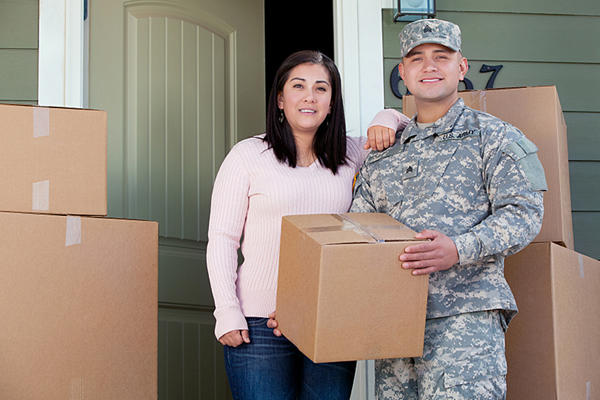There's no doubt that the prolonged separation of deployment can strain even the best of relationships. However, many spouses report that deployments ultimately strengthen their relationships by reminding them how much they love and appreciate their service member. A deployment does not have to be a negative experience for your relationship. While there are certainly hardships associated with your service member's absence, those same hardships can remind both of you why you fell in love in the first place.
"We make purposeful efforts to not assume the worst of the other, and trust each other that we are doing the best we can. We are a team."
–Army spouse
Sweet nothings can be everything!
If you're suddenly reminded of something you miss about your service member, write it down. Slip notes in the pockets of his uniforms before he packs them. Scribble even the smallest sentiments in a card and send it to your service member, just to remind her that you love and miss her. Write your sweet nothings on a piece of paper and place it in a jar, then keep filling up the jar until your service member returns or send it to him halfway through his tour.
"Even though we communicate through email, a snail-mail letter or card means so much to them. It means you're thinking about them and they're not forgotten while they're away. We know we never forget them but they need that physical reminder that we are thinking of them and missing them. That's the priority."
–Army spouse
Put pen to paper
Writing letters while apart—even if you have access to the phone or Internet—can help maintain the intimacy and closeness you have when you're together. Another wonderful tool to foster a sense of togetherness is journaling for each other. Some couples will buy journals in which they write about their days and their feelings for one another. It's okay to write about events or feelings that you already shared over the phone or email. The point is to memorialize your daily lives, thoughts, and feelings for your partner. The beauty of these journals lies in their ability to foster and maintain a sense of togetherness even while apart. When your service member returns home, you can give each other the journals as gifts.
"I wrote him a letter or card at least every other day while he was away. Typically, I'd sit down at the end of the day and jot down my thoughts from the day, anything major that happened (or minor, for that matter), and other gushy stuff you say to your husband. We were also able to email one another every day."
–Army spouse
Show you care with care packages
Many family members assemble care packages to send to their service member while he is deployed. Care packages serve multiple purposes: they give family members a tangible activity that they can do on behalf of their deployed service member; they boost the service member's morale and provide her with comfort items that she may not be able to obtain overseas; and they help maintain a positive connection between the service member and her family. While spouses generally send monthly care packages, friends and extended family members can do so also.
"I love sending him packages because it makes me feel connected to him. When I am missing him and want to talk, but we can't, I write letters. And I take lots of pictures to photograph what he may be missing."
–Marine spouse
The United States Postal Service has created a "Mili-kit" based on the items most frequently requested by military families. For more information on contents and on how to request your free kit, visit the USPS website at www.usps.com. If your service member does rapid cycling deployments and there isn't time to get mail to her, consider journaling or creating a package that you can gift her when she gets home.
Maintain connections via phone and internet
If possible, post online messages periodically about how family members are doing and a list of their activities and accomplishments. If you're able to call, talk about important family activities such as the children's education, finances, employment successes, recreational activities, attendance at church, or participation in family or other community events.


















